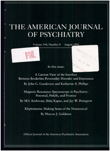Diagnosis, guardianship, and residential care of the mentally ill in medieval and early modern England
Abstract
Histories of psychiatry concerning preindustrial Europe emphasize demonologic beliefs and physical mistreatment of the insane. Records of an English legal incompetency jurisdiction demonstrate that both government officials and laymen accepted that psychiatric disorders had biological and psychosocial origins. This jurisdiction, which developed a social welfare dimension by the seventeenth century, offered benevolent protection for the insane. Private guardians arranged for the lodging and care of their wards in private homes. While physicians played little role in the certification process, the guardians made frequent use of their skills. Furthermore, some physicians with established reputations in psychiatry accepted patients into their homes for prolonged cures.
Access content
To read the fulltext, please use one of the options below to sign in or purchase access.- Personal login
- Institutional Login
- Sign in via OpenAthens
- Register for access
-
Please login/register if you wish to pair your device and check access availability.
Not a subscriber?
PsychiatryOnline subscription options offer access to the DSM-5 library, books, journals, CME, and patient resources. This all-in-one virtual library provides psychiatrists and mental health professionals with key resources for diagnosis, treatment, research, and professional development.
Need more help? PsychiatryOnline Customer Service may be reached by emailing [email protected] or by calling 800-368-5777 (in the U.S.) or 703-907-7322 (outside the U.S.).



